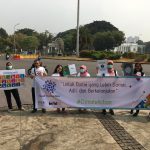
By Solina Kennedy
November 12, 2019
In this interview, the fourth of the Climate Crisis, Global Land Use and Human Rights series, Ángel Muñoz, Associate Research Scientist on Climate Variations and Predictability at the Earth Institute’s International Research Institute for Climate and Society at Columbia University, discusses the importance and implications of equipping countries with access to good climate data, climate services, and supplementary financial tools to optimize resiliency within communities.
During the October 21, 2019 webinar with Professor Jeffrey Sachs discussing CCSI’s report, Ensuring Economic Viability and Sustainability of Coffee Production, there were more questions asked than we were able to answer. We wanted to address this by answering some additional questions here.
By Lisa Sachs
October 16, 2019
To contribute to UNCITRAL’s work on these ISDS reform, CCSI, together with the International Institute for Environment and Development (IIED) and the International Institute for Sustainable Development (IISD), has submitted to the UNCITRAL process four documents outlining potential reform options and considerations.

By Solina Kennedy
October 4, 2019
In this interview, the third of the Climate Crisis, Global Land Use and Human Rights series, Daniel Oscar Baskoro, Partnership Advisor at the International NGO Forum on Indonesian Development (INFID), discusses transdisciplinary collaboration as a necessary means to addressing the challenges and solutions at the intersection of climate change and human rights.

By Solina Kennedy
September 20, 2019
In this interview, the second of the Climate Crisis, Global Land Use and Human Rights series, Julie Maldonado, Associate Director at Livelihoods Knowledge Exchange Network (LiKEN) and Co-Director of Rising Voices: Climate Resilience through Indigenous and Earth Sciences, discusses the importance of centering Indigenous wisdom and perspectives and relational-based approaches in the pursuit of just climate change actions.

By Lisa Sachs, Lise Johnson, Kaitlin Cordes, Jesse Coleman, Brooke Guven
September 6, 2019
Two-thirds of the world’s population, 5.1 billion people, lack meaningful access to justice. In many cases, injustices are frequently caused or perpetuated by business activity. Despite international obligations for states and corporations, as applicable, to provide appropriate and effective remedies, injustice persists. The Business and Human Rights Arbitration Working Group, a group of respected practicing lawyers and academics, is advancing The Hague Rules on Business and Human Rights Arbitration (the “BHR Arbitration Rules”) to help address the remedy gap. This blog discusses concerns about the draft BHR Arbitration Rules that could result in them undermining, rather than advancing, access to justice of human rights claimants.

By Solina Kennedy
September 2, 2019
In this interview, the first of the Climate Crisis, Global Land Use and Human Rights series, Annie Signorelli, Project Manager for Renewable Energy and Human Rights at the Business and Human Rights Resource Centre (BHRRC), discusses the critical need for embedding human rights, especially those of indigenous communities, within the renewable energy sector, and the hurdles faced in pursuing environmental justice without compromising human rights.

By Sam Szoke-Burke and Kaitlin Y. Cordes
August 30, 2019
High global demand for land and natural resources has made protection of community lands and natural resources an urgent priority, particularly in countries with little or no legal protection for community land rights. Increased and smarter financing is urgently needed to meet affected communities’ justice and support needs.

By Nathan Lobel
August 20, 2019
The climate crisis will reshape our relationships to land around the world. Journalist David Wallace-Wells warns that, once the planet warms 2°C above preindustrial levels — the target set by the Paris Agreement — “major cities in the equatorial band of the planet will become unlivable,” and 400 million more people will suffer from regional water scarcity. At 3°C of warming — the expected result of Paris Agreement policy pledges by 2100 — world agriculture systems could struggle to meet global caloric demand and droughts are projected to plague much of India and Pakistan, the Mediterranean, Central America, the western United States, and Australia. At 4°C, closer to where current policies will lead us by the century’s close, rising seas could swallow land currently occupied by 470 to 760 million people.
By Cynthia Sanborn and Weijun Xie
February 21 – March 9, 2019
Cynthia Sanborn, of the Universidad del Pacífico in Lima, Peru, recently interviewed Weijun Xie, Vice President of China Minmetals Rare Earth Co., Ltd, and a fellow member of the Executive Session on the Politics of Extractive Industries, about the rising prominence of Chinese companies in the world extractive industry. Their conversation addresses the larger political concerns for Chinese investors as they enter into an investment world historically dominated by European and American companies. It also addresses the on-the-ground political challenges of effective communication, transparency and consultation that affect all extractive industry investments, but particularly new and growing enterprises such as those coming out of China.










